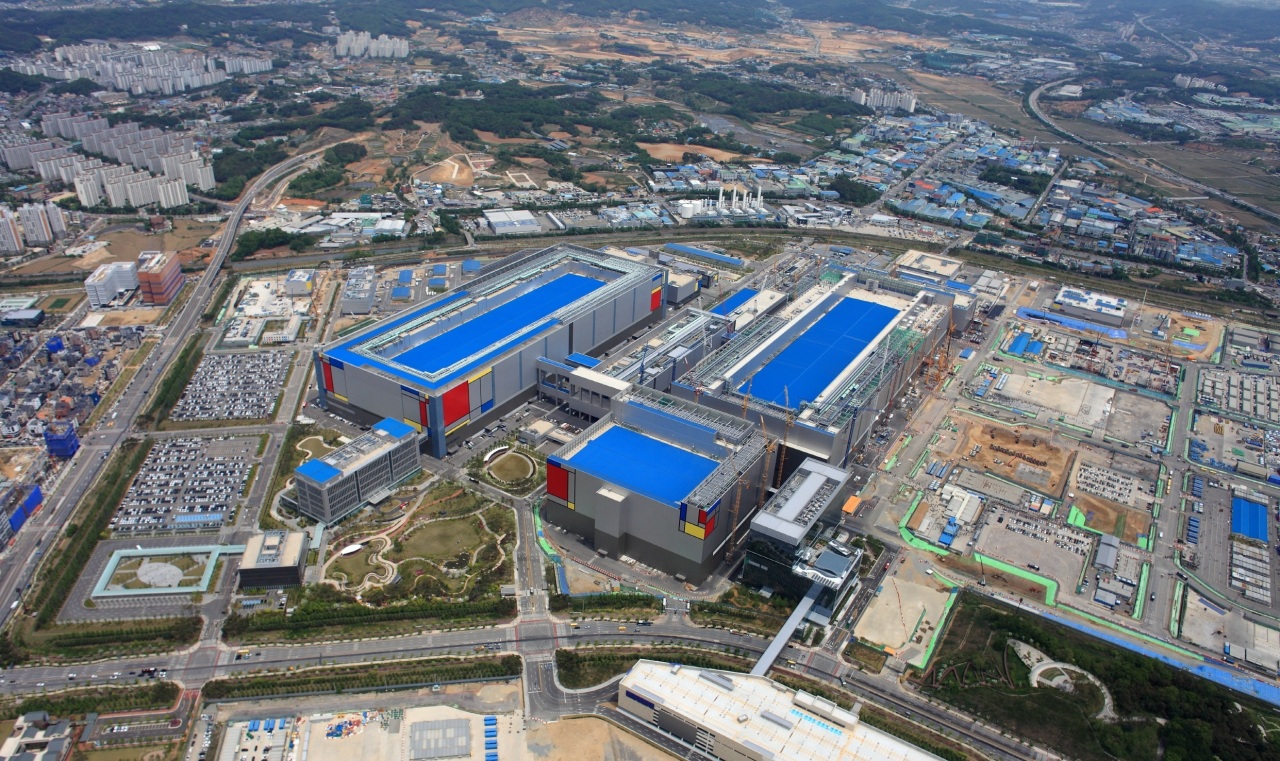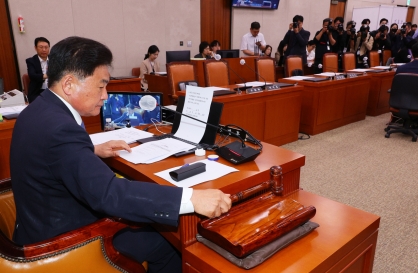 |
(Samsung Electronics Co.-Yonhap) |
Samsung Electronics Co.'s market share in the global foundry industry is expected to increase in the current quarter from the previous three months, a report showed Thursday, with growth in the 5G smartphone market.
Samsung's share of the foundry business was estimated at 18.8 percent in the April-June period, 2.9 percentage points higher than three months earlier, according to a report from industry tracker TrendForce.
The South Korean tech giant's revenue from the foundry business was expected to jump 15.7 percent on-year to $3.6 billion in the second quarter of the year, TrendForce said.
"Owing to good customer adoption rates of 5G smartphones featuring Qualcomm's mid-range and high-end 7-series Snapdragon 5G platforms, the demand for Samsung's 7nm process technology was relatively stable," TrendForce said.
The industry's leading player, Taiwan Semiconductor Manufacturing Company (TSMC), is expected to see a slight decrease in its market share in the second quarter, TrendForce said, but will maintain its dominant status.
TSMC was projected to mark a 51.5 percent market share in the second quarter, down 2.6 percentage points from three months earlier. The company was estimated to post on-year revenue growth of 30.4 percent to collect $10.1 billion in the second quarter.
GlobalFoundries was expected to take the No. 3 spot in the global foundry market with 7.4 percent share, followed by UMC with 7.3 percent. South Korea's DB HiTek Co. was estimated to rank tenth, with revenue of $193 million in the second quarter.
Overall, TrendForce expected the combined revenues of the top 10 foundries in the second quarter to increase 23.1 percent from a year earlier as there was not a massive reduction in wafer start orders in the first quarter, while foundry clients increased their orders in the current quarter amid the novel coronavirus pandemic. However, the market researcher warned of uncertainties in the second half of the year.
"The ongoing trade tension between China and the US means not all foundries have benefited from the wave of demand, and the increased demand in 2Q20 does not represent a revenue driver capable of supporting the overall foundry industry in the long term," it said. (Yonhap)






![[KH Explains] Hyundai's full hybrid edge to pay off amid slow transition to pure EVs](http://res.heraldm.com/phpwas/restmb_idxmake.php?idx=644&simg=/content/image/2024/04/18/20240418050645_0.jpg)

